So, yeah, this is a little late — I believe the current parlance is “dragging” — but I have gotten in quite a bit of catch-up over the past two months. (In fact, I watched two of my top 25 this past week, including the aforementioned Whiplash — Thanks OnDemand!)
The only Best Picture contenders I missed in the end were American Sniper — yeah, no thanks — and The Imitation Game, which looks frightfully Oscar-baity to me, and apparently does rather poorly by Turing, so oh well. Otherwise, and now that those Oscars have come and gone, time to fish or cut bait. So here’s last year’s Top 25 at last!
Suffice to say, 2014 was a pretty lean year in cinema — as weak as any I can remember (and even then the Academy made a hash of it) — so here’s hoping for a higher average quality of prospects over the next ten months.
[2000/2001/2002/2003/2004/2005/2006/2007/
2008/2009/2010/2011/2012/2013/The Oughts]
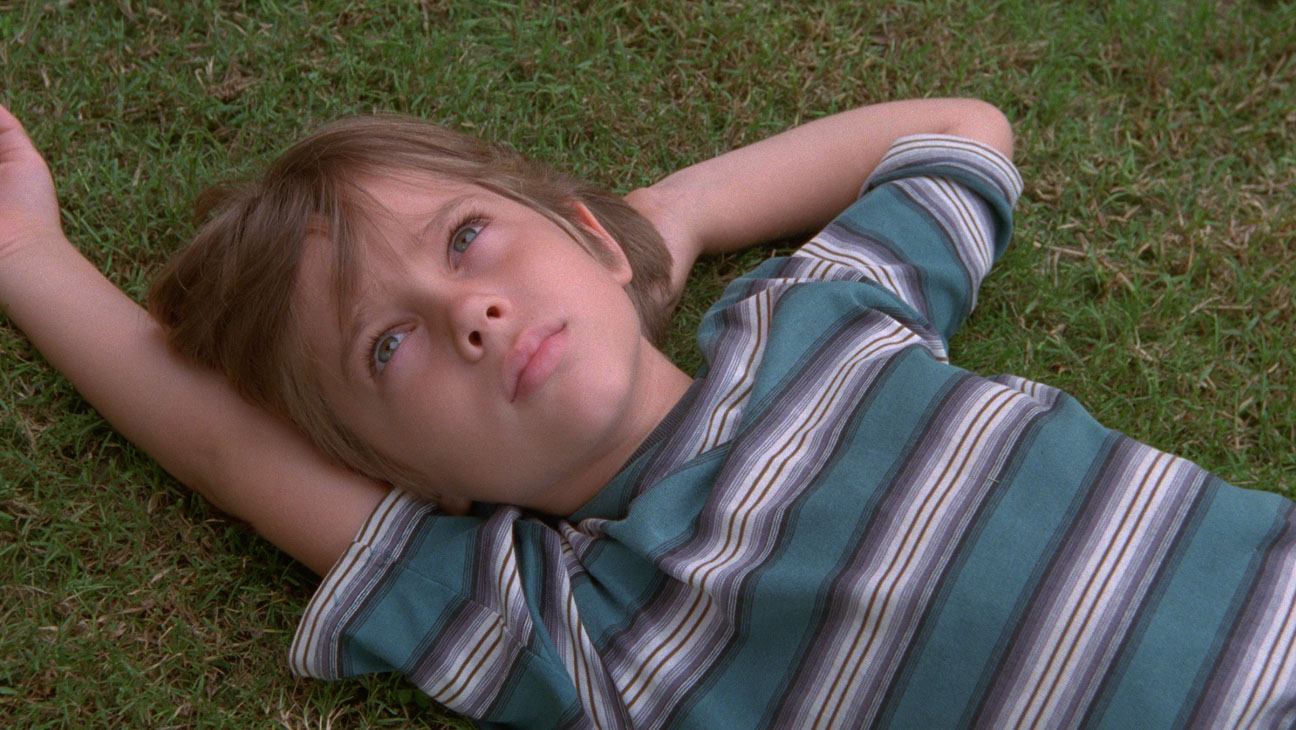
While we’d seen glimmers of this sort of storytelling in the 7-Up documentaries, Linklater’s own Before series, and even the Harry Potter movies (where we watched all the Hogwarts kids grow up over the years), this remarkable coming-of-age tale felt like something entirely new. The degree of difficulty here is extraordinary, and yet Linklater and his dedicated adults — Patricia Arquette and Ethan Hawke, whose onscreen aging makes the film that much more resonant — took what could’ve just been a gimmicky stunt or shapeless experiment-gone-wrong and imbued it with subtlety, nuance, and introspective intelligence.
In a sense, Linklater crafted with Boyhood the experience that Terence Malick clearly sweat bullets to approximate in The Tree of Life — how it’s the little things, the languid afternoons or random car trips, that stick with you as you grow up and/or grow old. But, unlike Malick’s more labored undertaking, Linklater makes the storytelling here seem effortless. Which of course, it wasn’t — this took 12 years! The magic of Boyhood is that that passage of time is woven into the fabric of the film itself. You sense it, slipping past you and the characters both, as you watch.
True, Oscar rarely gets it right — Last year was a notable exception in that regard. Still, as Dan Kois pointed out on Oscar night, snubbing Boyhood was an egregious mistake, and one that will speak poorly of the Academy’s judgment for many moons to come.
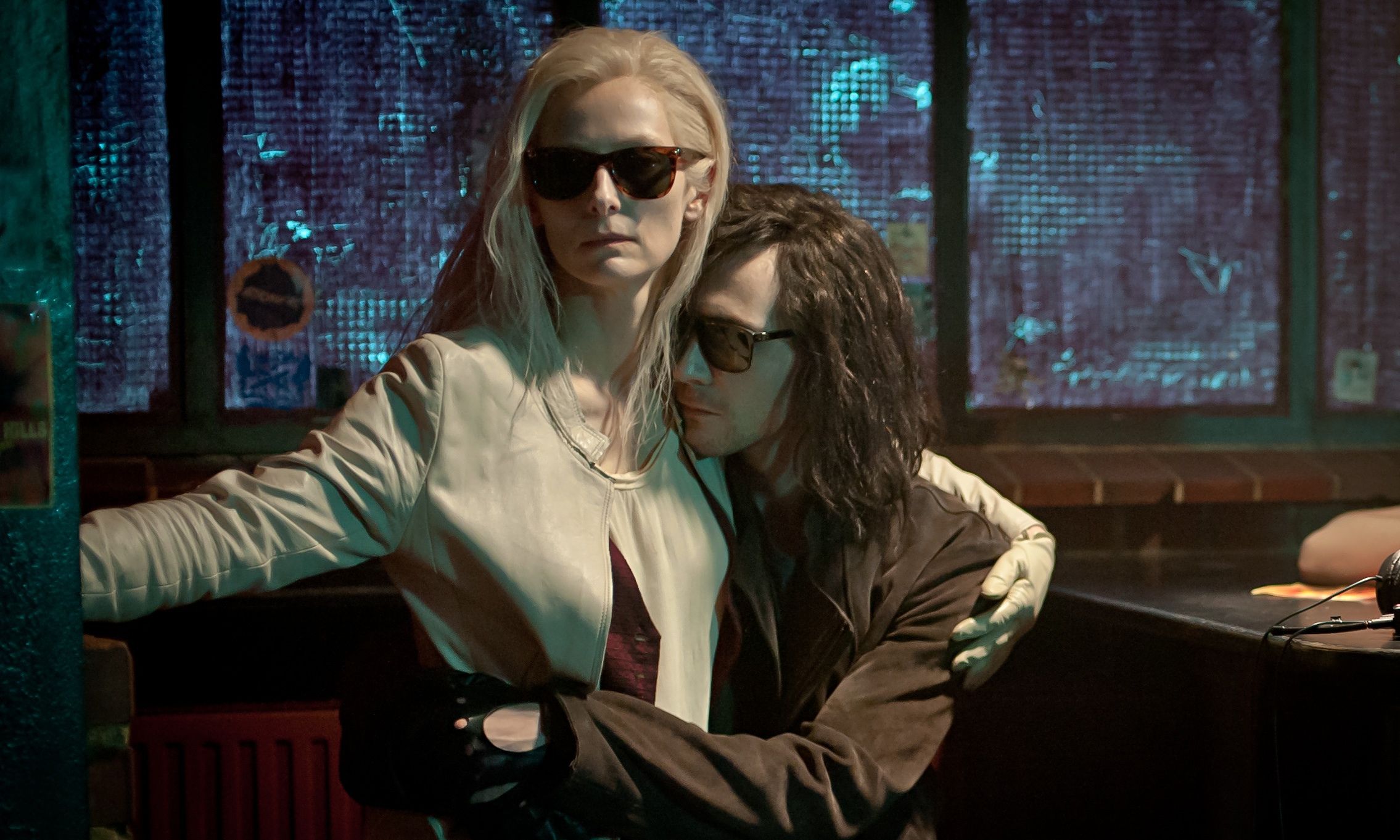
If Boyhood reflects how quickly the inexorable arrow of time speeds us along from four-legs to two-legs to three, Only Lovers and its bevy of bored blood drinkers suggest that timelessness can be kind of a drag after awhile also. Still, watching our heroes and heroines kick around the ruins of Detroit and Tangier is great fun and, with all due respect to whatever Joseph Gordon-Levitt is cooking up these days, it’s hard to imagine a better film made of Neil Gaiman’s Endless than what we have here. (Mia Wasikowska’s character in particular is the spitting image of Death.)
Also, while I liked her as the White Witch, I’ve generally found Tilda Swinton underwhelming in the past — See, for example, what I wrote about Michael Clayton back in the day. Here, she’s absolutely captivating. (As for Tom Hiddleston, he’s been doing the bored immortal schtick over at Marvel lately, so this isn’t too far afield for him.)
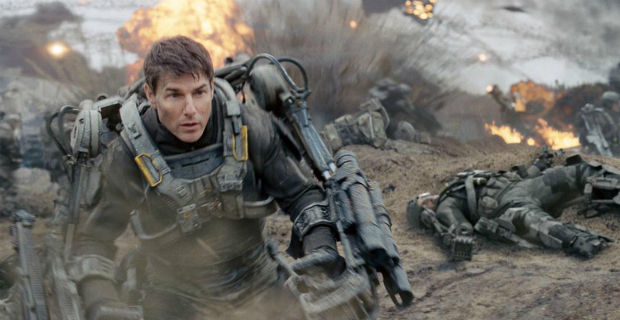
Speaking of which, Tom Cruise may be creepy as all hell in real life, but he continues to make excellent decisions on the action and sci-fi film front, and here’s he backed up by a very capable Emily Blunt — who hilariously promised she’d never make exactly this sort of film back in 2005 — and a number of wily, likable genre veterans: Brendan Gleeson, Noah Taylor, Bill Paxton. In a mostly forgettable summer, this is a movie that deserved to do better.
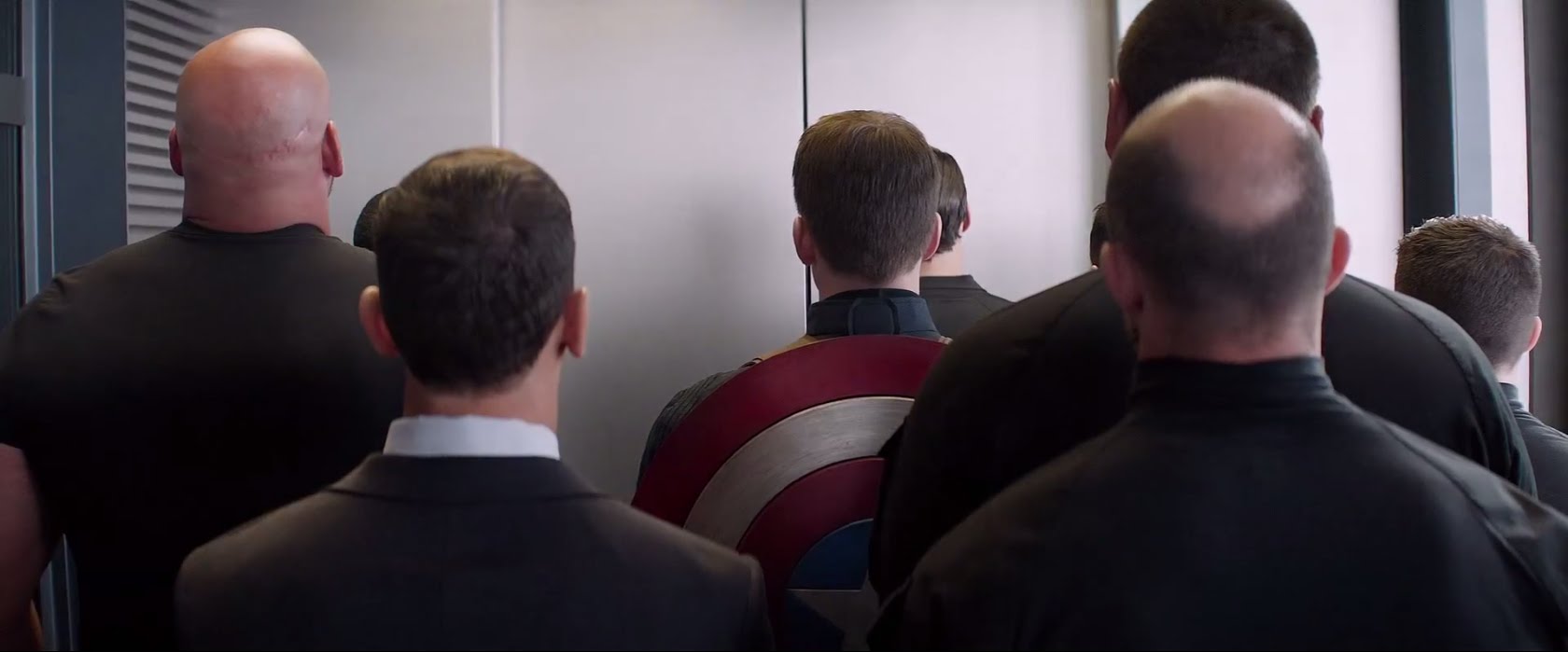
Perhaps the best part of The Winter Soldier — at a time when even those of us who wanted more comic movies back in the day are perhaps feeling a little buyers’ remorse — is the Alan Pakula, seventies-conspiracy-theory tone of its first two acts — heck, even Robert Redford is involved. The Winter Soldier demonstrates that Marvel is savvy enough to realize that not all their films have to feel the same (something we’ll hopefully see more of in their upcoming Netflix Daredevil series.)
As I said here, I’m not a big fan of the floating-helicarriers-again third act or the absurd death count in this film. Still, in this age of NSA overreach, CIA torture, and general 9/11 hysteria, it sure is nice to see Cap stand up for the real red, white, and blue.
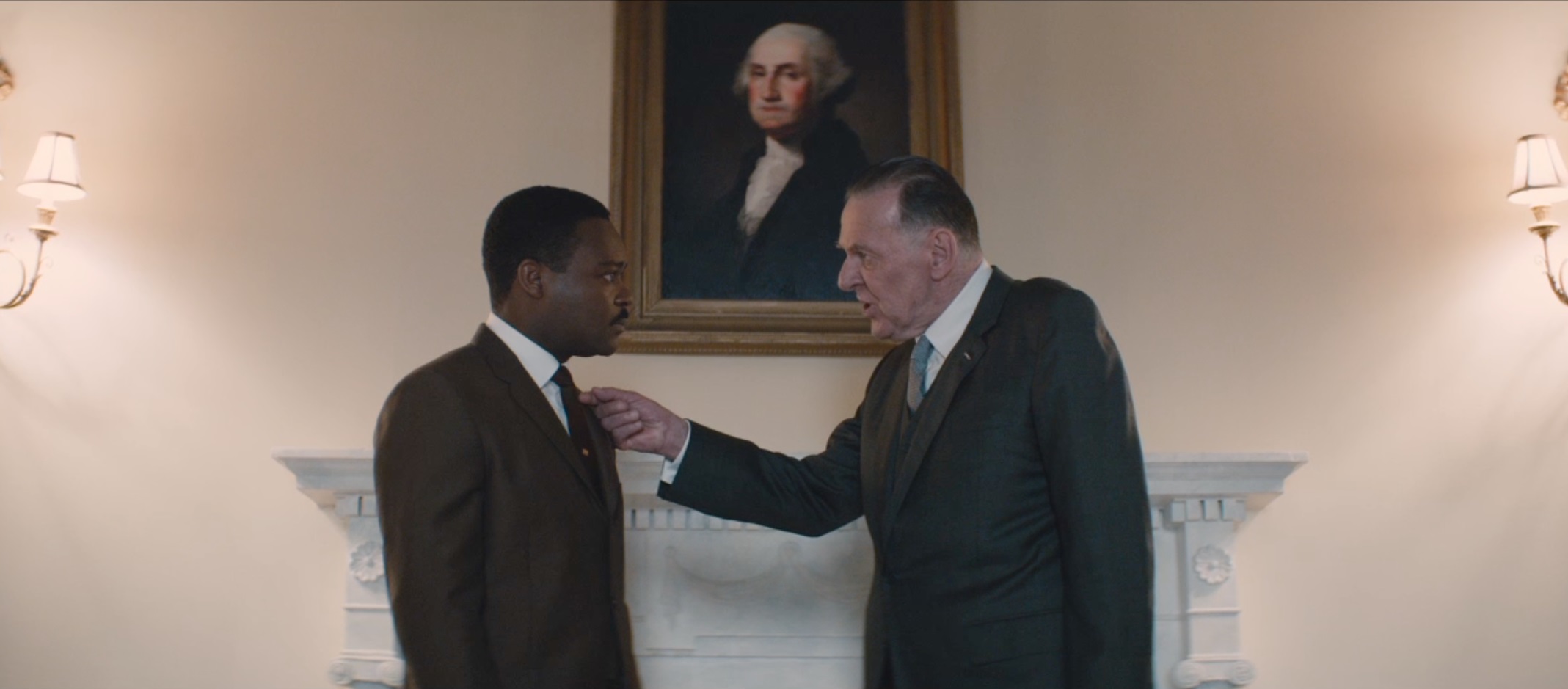
All that being said, I found it hard to take my history hat off during the movie, and on that end I felt like Selma had some issues. Much has been made of the treatment of LBJ — here are the briefs for the prosecution and the defense — and, while many films do worse violence to history, I still left the theater feeling like LBJ got screwed here. (His calling in a chit with J. Edgar was particularly galling.)
That aside, a bigger problem is that MLK himself seems off. As everyone knows, for copyright reasons, Selma couldn’t use any of Dr. King’s real words — which, by the way, is totally bizarre. Nonetheless, the words they came up with instead were tonally jarring — less memorable, too script-y, often (as at Jimmie Lee Jackson’s funeral) too on-the-nose. To me, they just didn’t sound like Dr. King, and didn’t capture either his poetic genius or his public persona.
However conflicted and exhausted he was in private (and this the film does well), his public voice — at least in 1965 — was more eloquent and more unshakeable in the conviction that freedom, justice, and the Beloved Community were inexorably going to win out. But, in a perfect world, the scriptwriter shouldn’t have had to reinvent the wheel — if you’re going to make a film about MLK, let the man speak his own words.
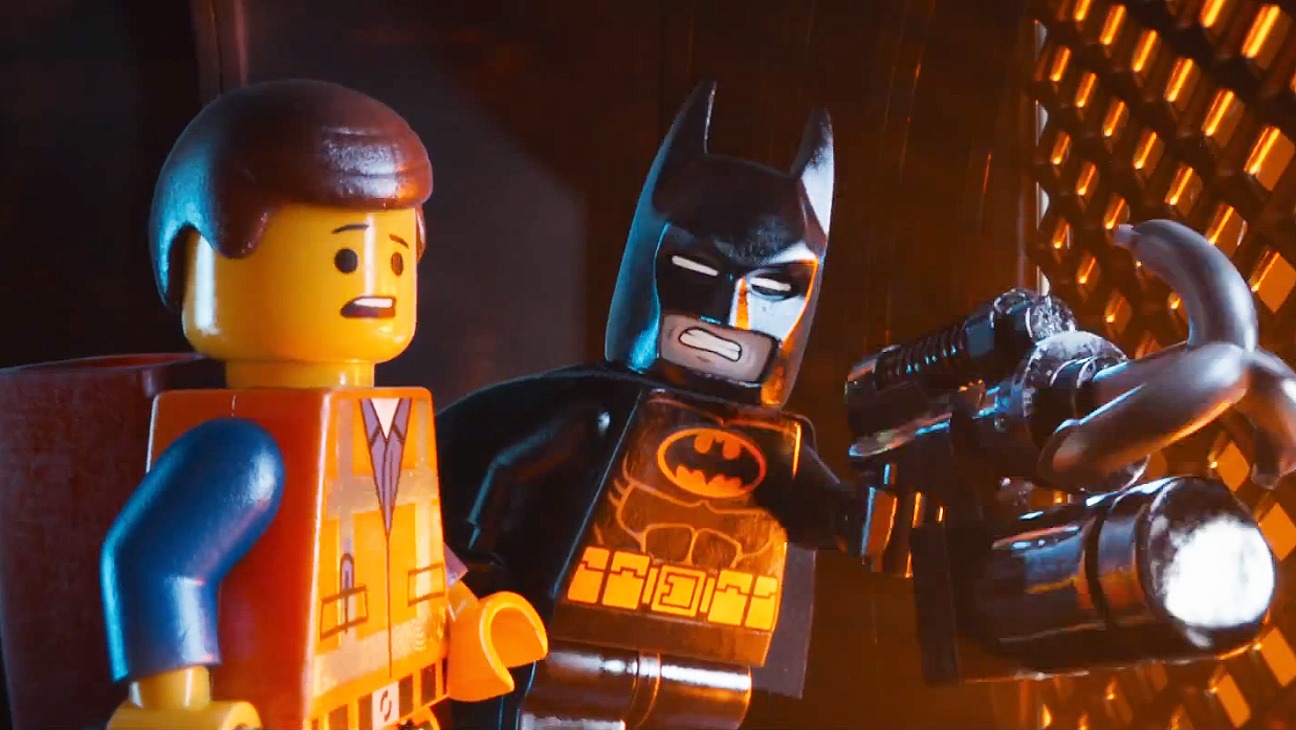
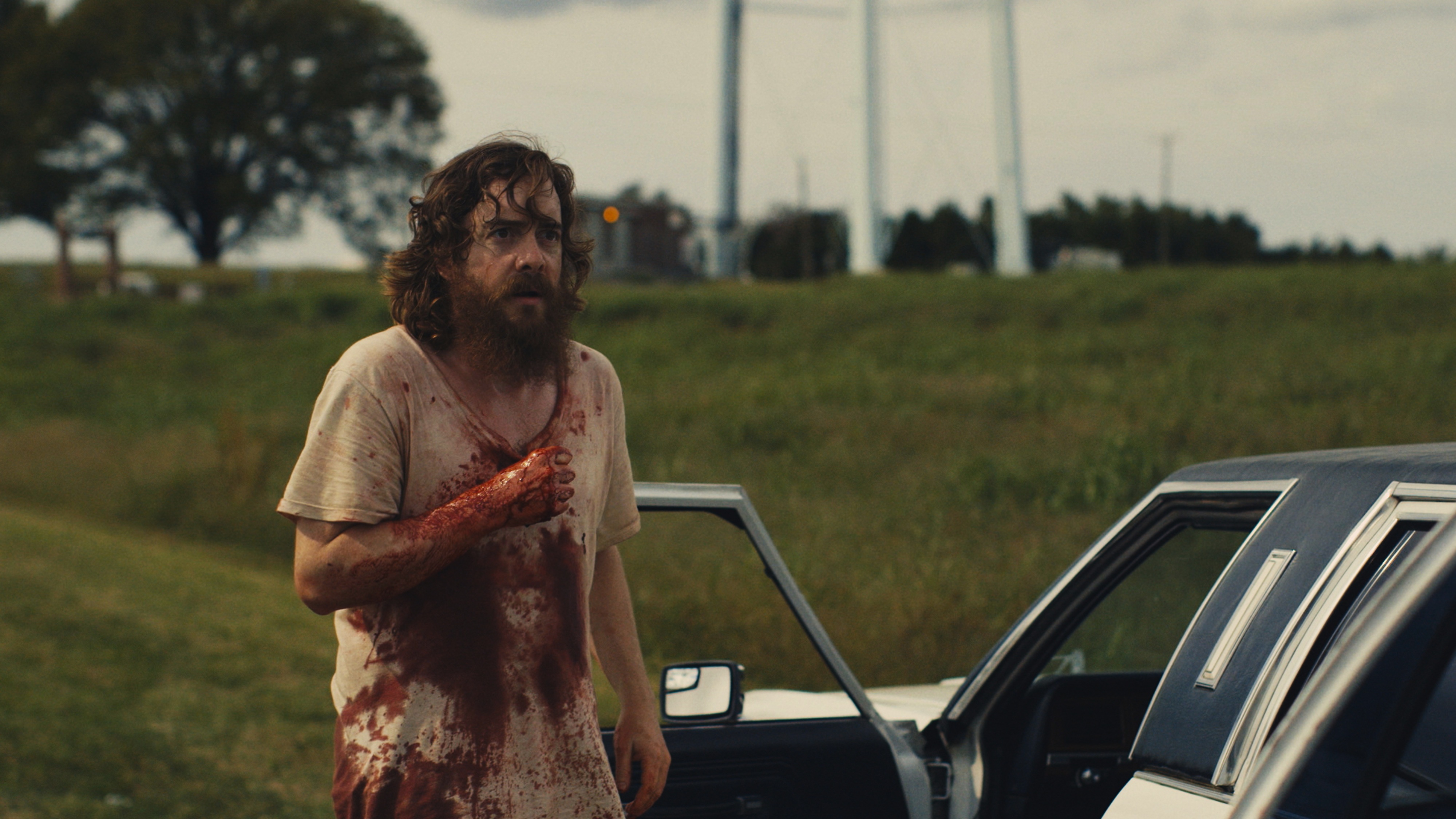
One definite upside: the chance to catch movies like Jeremy Saulnier’s Blue Ruin, a Coen-esque indie thriller about what happens when an average, loser-ish guy (Macon Blair) decides to seek revenge on the men who killed his parents, just like they do in the pictures. Ruin loses some steam as it goes along, but few movies this year so vividly conveyed that sickly, lurching “then THIS happened” feeling of watching a simple plan unravel.
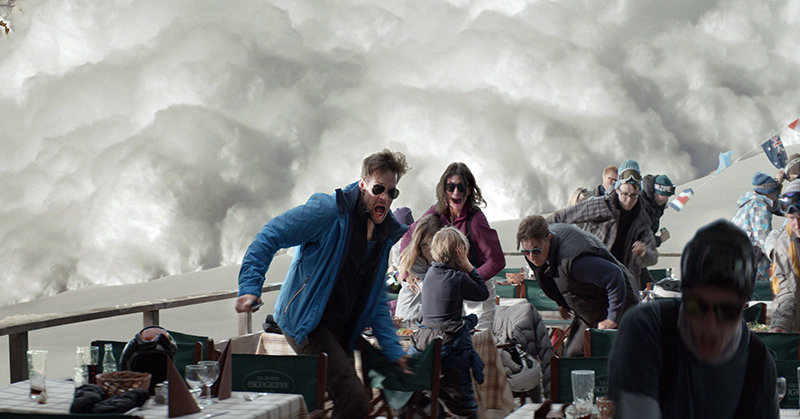
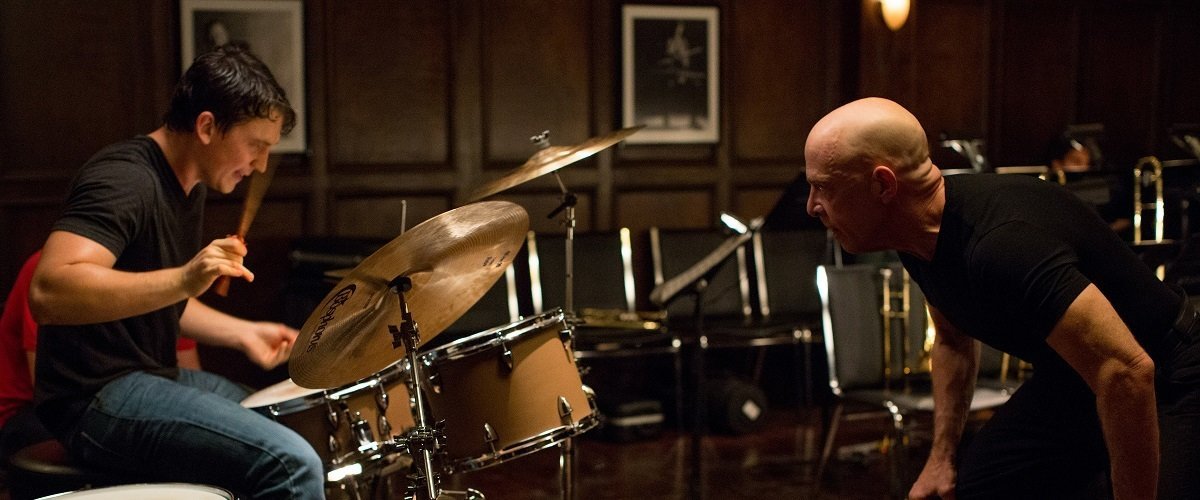
Nor did the stakes seem all that high to me — I guess, if I’m honest with myself, I just don’t care all that much about the world of jazz drummers. All that being said, this is a sleek, lean, well-made and very watchable audience picture with a fun performance at its core — the inimitable J.K. Simmons as the Hannibal Lecter of bandleaders. And it’s always great to see a long-time character actor get his due.
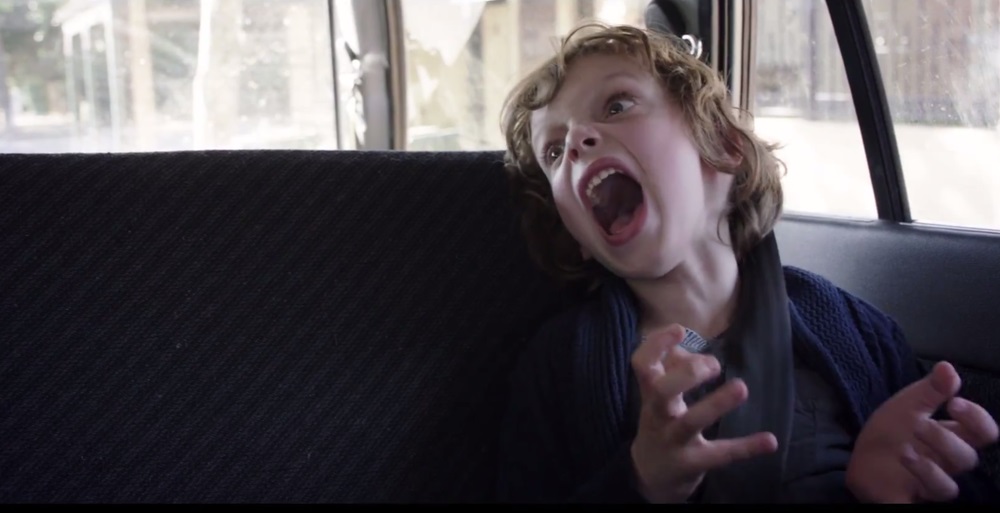
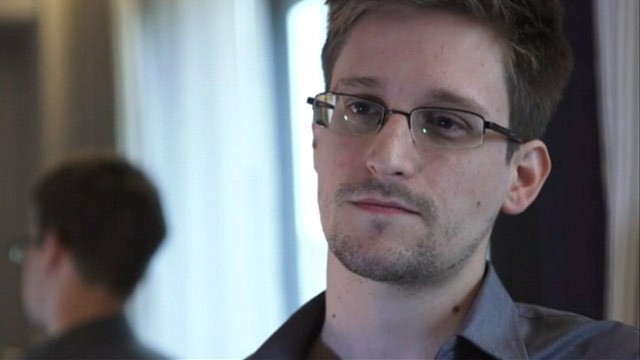
I do wish CitizenFour had spent more time explaining exactly what Snowden revealed (it does a good job on metadata, for example) and less of him, say, futzing with his hair. Still, for humanizing Snowden and getting the other side of the story out there, this is an important and worthwhile film.
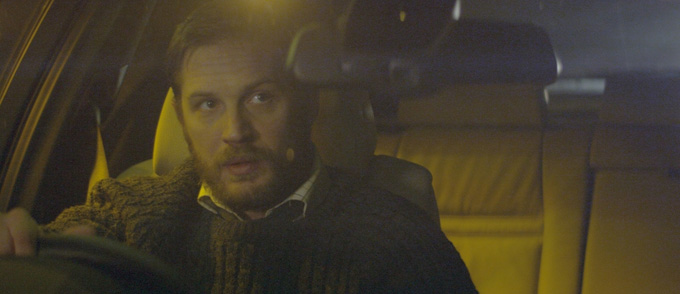
All of Locke is just Hardy behind the wheel at night, muttering in a Welsh brogue about last year’s mistake and tomorrow’s “pour.” But damn if it isn’t engrossing for most of the drive.
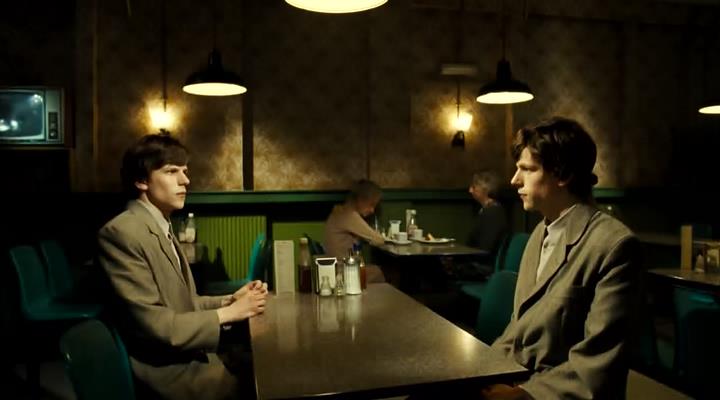
In any event, a fun two hours with very likable actors like Jesse Eisenberg, Mia Wasikowska, and Noah Taylor (the latter two also good in Only Lovers and Edge of Tomorrow this year respectively) And if the Eisenberg-Michael Cera Doubling dilemma even exists anymore — Eisenberg seems to have pulled away by now — I suppose this is Eisenberg’s answer to Cera’s Youth in Revolt.
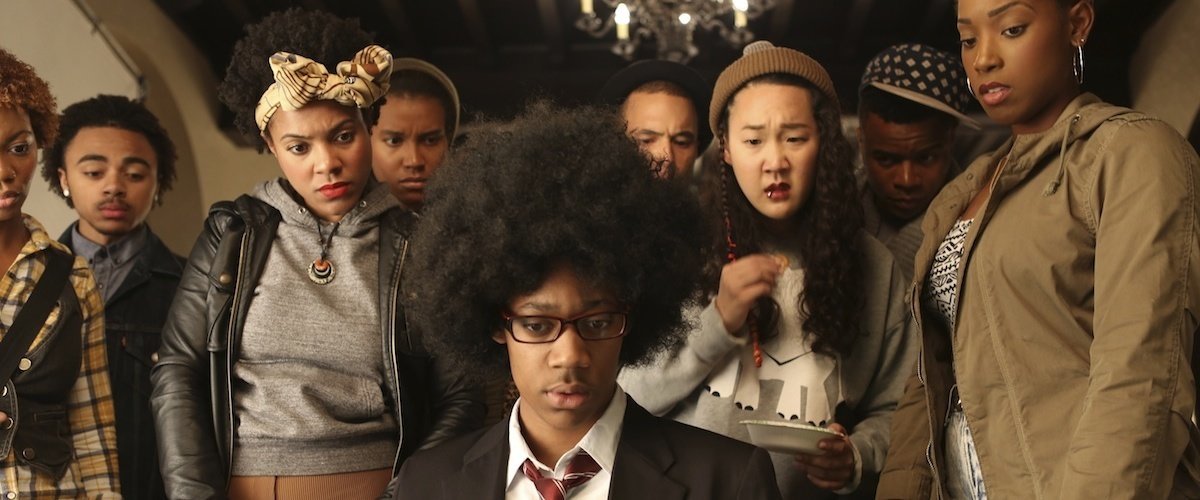
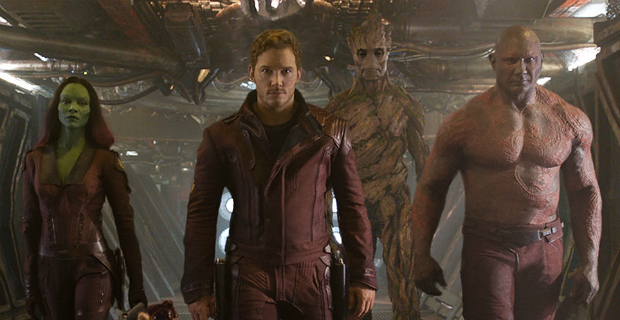
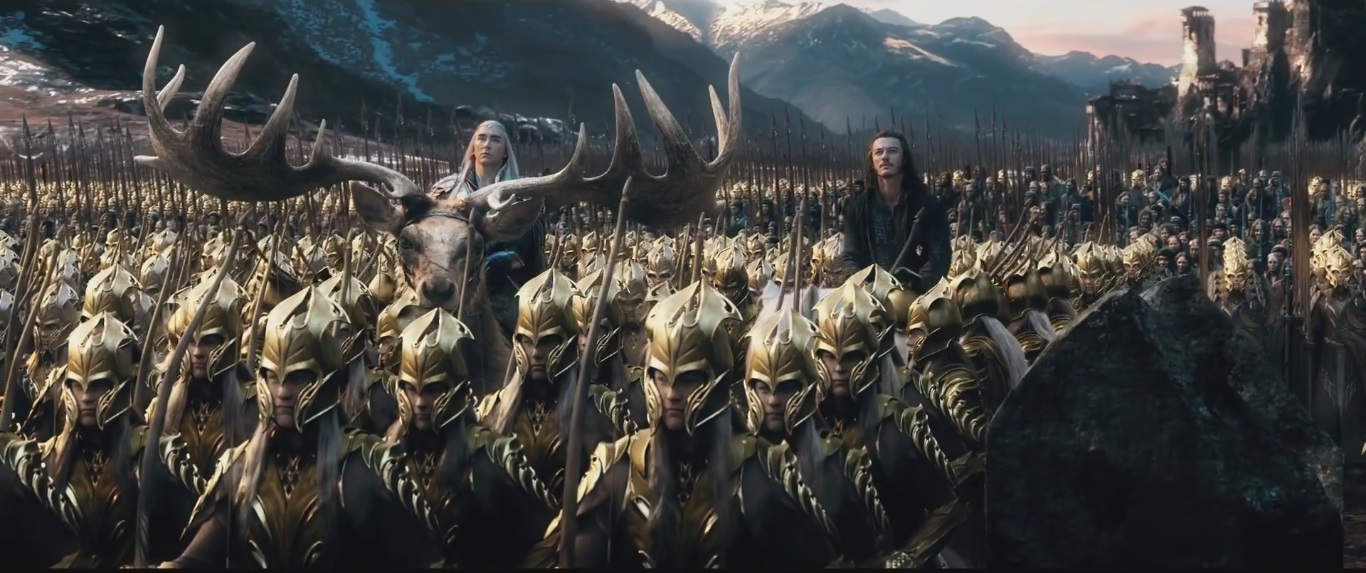
There are any number of small problems here. First off, the fact that Smaug the Magnificent is taken care of before the title card suggests that maybe his final fate should’ve been sorted out in the second film. (And cut that awful Alien 3 homage at the end of Smaug too please — it makes the Great Wyrm a buffoon.) Second, having to pad out an entire movie from what’s left means a lot of filler — everything about Alfrid, the Unibrow of Laketown, was cringeworthy.
More importantly, tho’, I get why Jackson wanted to tie The Hobbit closer to Lord of the Rings thematically and aesthetically, but doing so ruins the whole point of the Battle of Five Armies. This was Tolkien in WWI mode — the battle is a ghastly and ludicrous mistake set off by greed and misunderstanding. But as portrayed here, it’s instead a prelude to the WWII, “Good Fight” of LotR against the encroaching menace of Sauron. So instead of Tolkien skirting over the battle because it’s a bunch of nonsense that Hobbits rightfully shouldn’t be caught up in, we get two hours of honor and glory and sacrifice and more martial humdrum. Don’t get me wrong, there’s a place for that — it’s called The Lord of the Rings.
As a result, Bilbo is very much a passive participant in the film that’s ostensibly telling his story, and that’s a shame. I wouldn’t say additions are necessarily the problem — far and away the best part of this movie is the White Council showing up at Dol Guldur. But it looks like there were probably two great films to make from this source material — not three. The Battle of the Five Armies is still a very competently made action epic, and one that’s engaging from moment to moment. But, sadly, it’s the least of PJ’s six Tolkien films. We’ll always have Fellowship.
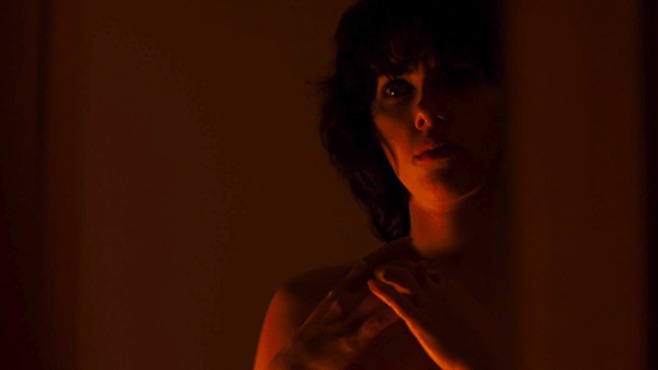
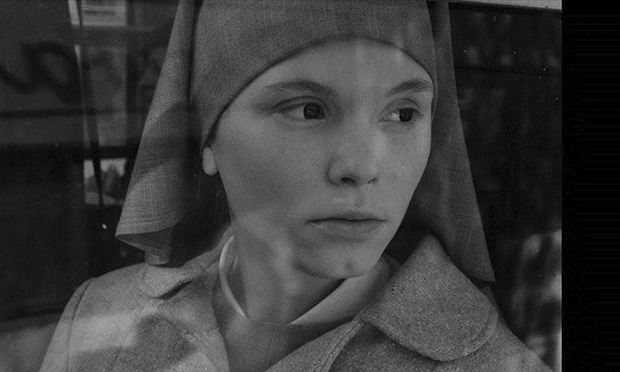
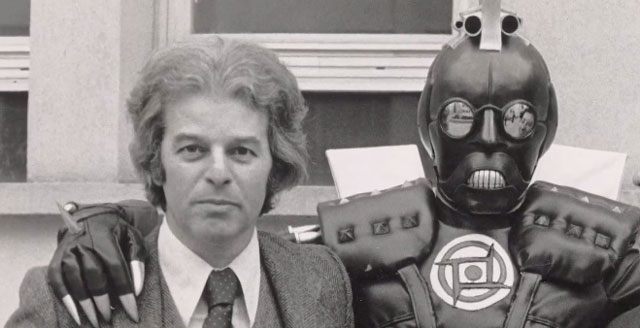

But the main joy in Zero Theorem is in the canvas it provides for Gilliam to rethink his Brazilian dystopia for modern times. (See, for example, Waltz being chased around by a Gwendoline Christie ad.) I’ll be the first to admit the film gets lost in its second hour, but I still enjoyed this chance for Gilliam to indulge his creativity and sense of humor, be it David Thewlis in a Tigger-suit, Peter Stormare and Ben Whishaw showing up as mad doctors, or Matt Damon in zebra stripes.
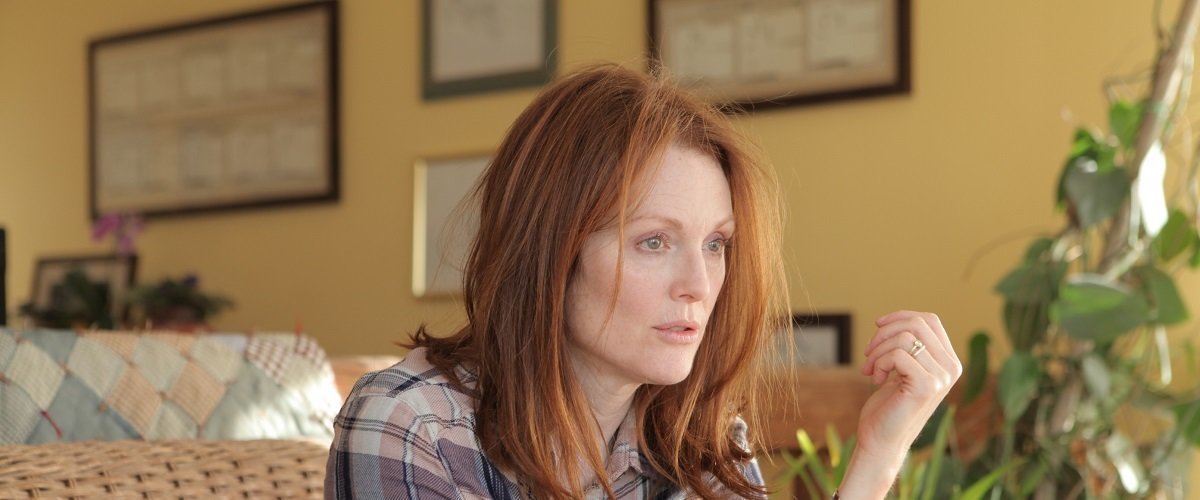
Still, Moore is very, very good in Alice, and her recent Best Actress win is deserved for her slip-sliding away in this film as much as for her impressive body of work over the years.
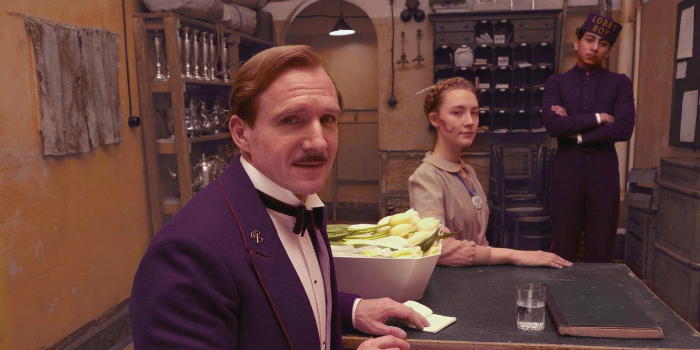
Plus, it may be like complaining about an Archduke Ferdinand joke at this point — and, it’s true, I hardly ever don’t find angry Hitler videos funny — but Anderson’s kitschy SS Banners fluttering about the hotel put me off. Worked for some, I know, but I personally found it a mite weird and distasteful to make a Holocaust film so precious and twee.
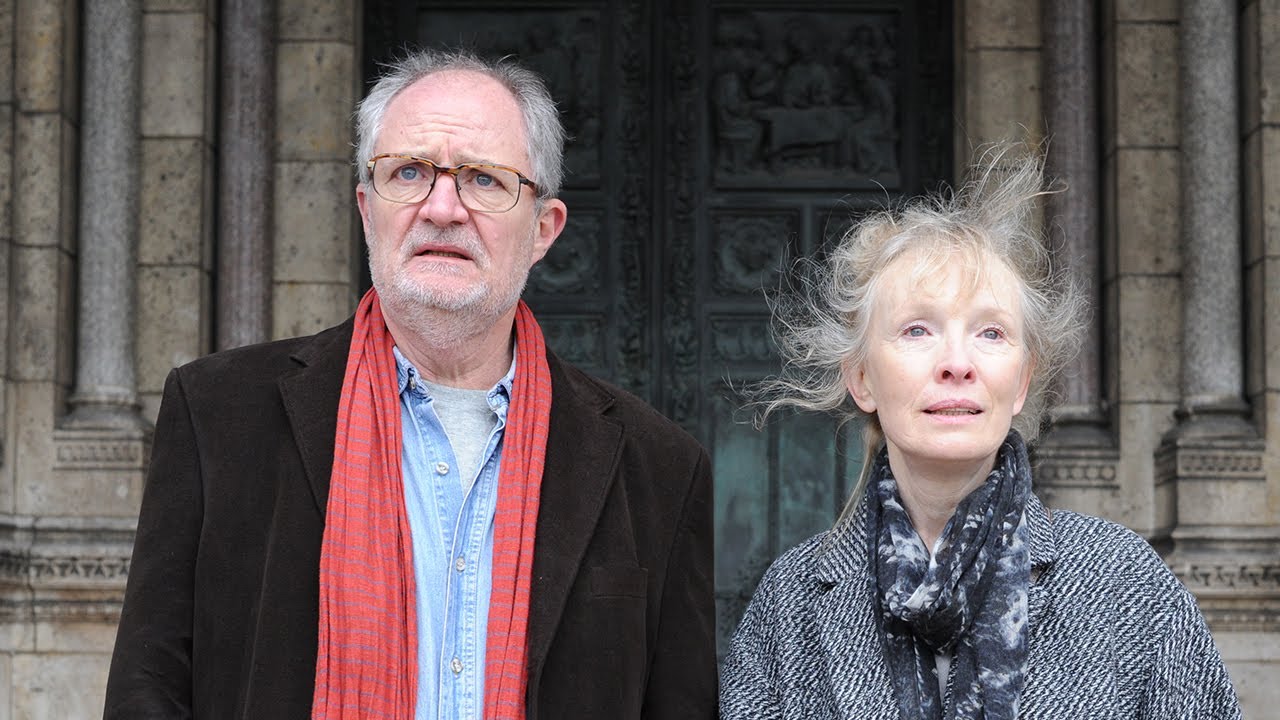
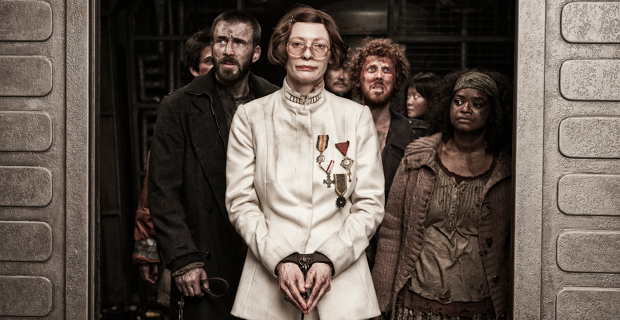
Still, however nonsensical, Snowpiercer had its moments, from Tilda Swinton’s Thatcher-hatchet job to the swing through Alison Pill’s kindergarten class. I’ve seen worse.
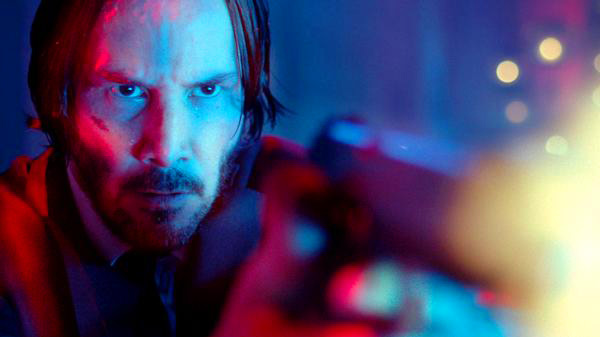
MOST DISAPPOINTING:
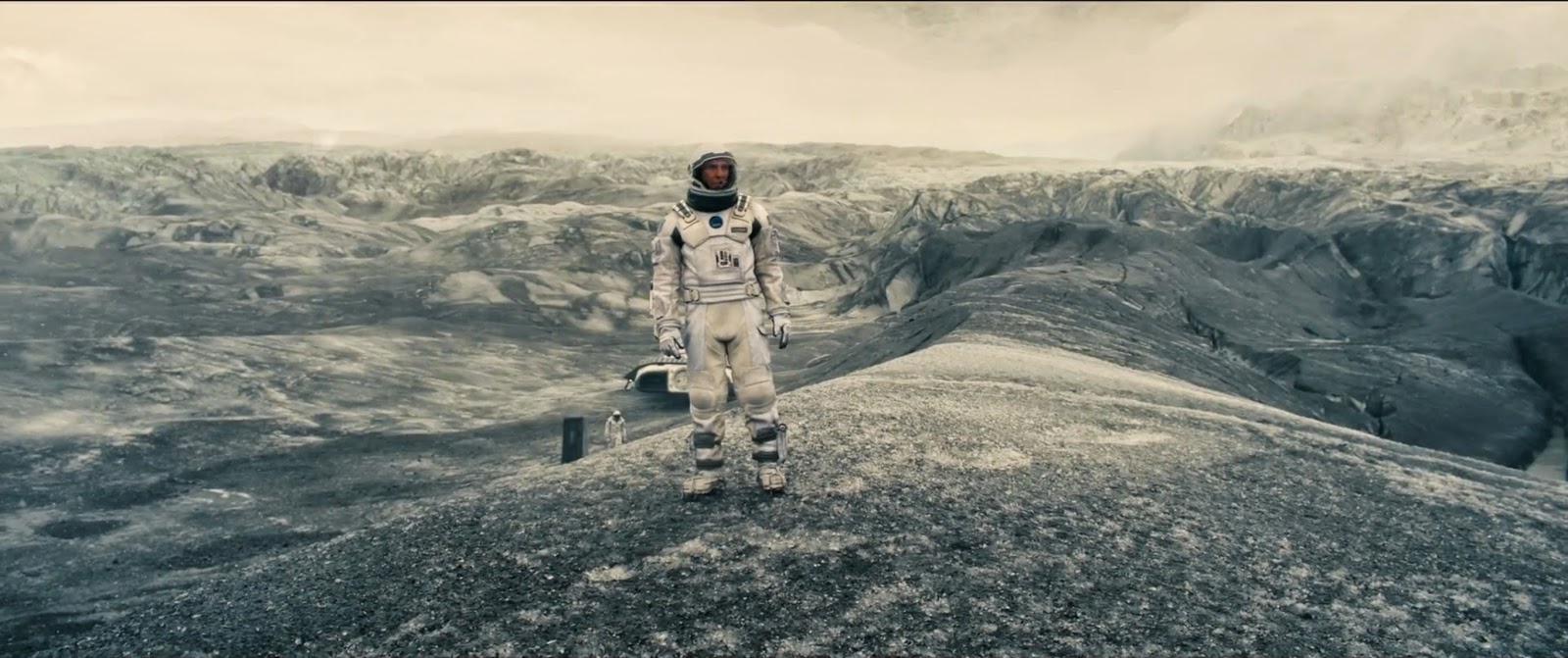
Interstellar: Hey, you know what would’ve made Gravity better? If, instead of lamenting her dead kid, Sandra Bullock went back in time for the last thirty minutes to see her again! Because there’s no way audiences are going to be interested in this outer space stuff unless we glom it on to a treacly soap-opera-level story about missing fathers and second chances!
Honestly…w…t…f. Interstellar had issues from the start — nothing about getting McConaughey into space makes much sense — but there were still some positives along the way: The wave planet is suitably nightmarish, and Matt Damon’s character is an interesting wrinkle. But then that Looney Tunes, saccharine final act came along and all goodwill I had for the movie was sucked out into the vastness of space. A weird miss by Christopher Nolan — here’s hoping for better next time.
THE EMPEROR’S NEW CLOTHES:
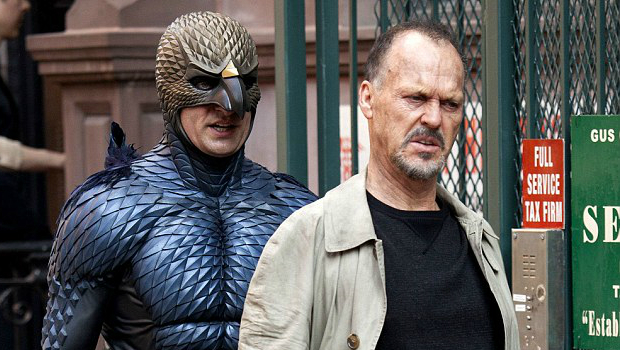
Anyway, with the exception of the game cast, this movie is pretentious and terrible from the word go. Everything else about it: that godawful subtitle, the interminable jazz drums, the ideas that sound smart but are awfully shallow, the high-schoolish references to Raymond Carver and Macbeth, the looking down on comic book movies which are usually better thought out than this affected drek, the delusions of artistic grandeur — is obnoxious and hollow. It’s like a two-hour adaptation of David Denby’s whiny complaint that people who saw The Matrix should read Cheever instead.
The only positive thing I can say about Birdman is that it’s better than Inarritu’s 21 Grams, a film which is terrible for almost exactly the same reasons — and even that’s not much of a positive, because I laughed harder during 21 Grams than I think I have in any movie before or since. This is just a lousy, pretentious movie — but it’s about how hard it is in Hollywood when nobody understands your integrity as an artist (#firstworldshowbusinessproblems) so like Argo and The Artist, let’s give it an Oscar.
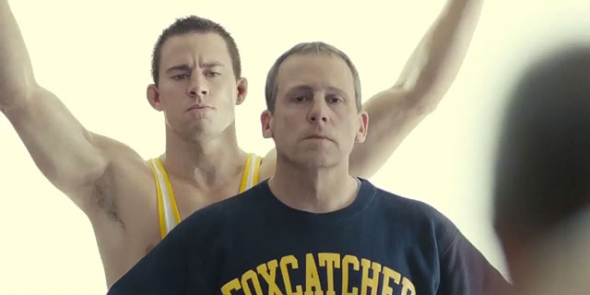
Miller strains hard to make the tragic tale of uber-wealthy paranoid schizophrenic John Eluthere Du Pont (Steve Carell) and his fascination with Olympic wrestling (and specifically with Olympic wrestler Mark Schultz (Channing Tatum)) a metaphor for wayward father figures, the tyrannical predilections of the super-rich, and the death of the American Dream. And, yes, I’m inclined to agree that 1%’ers are generally awful, exploitative people, and success in America is all-too-often a rigged game. But tell me something I don’t know, like, I dunno, the story of why Du Pont shot Mark’s brother, Olympic coach Dave Schultz (Mark Ruffalo).
Instead, we get two gray and glacial hours of Tatum playing Mopey McGee, followed by a random-feeling leap to almost a decade later which briefly covers the murder. Tatum can be an engaging actor, but he’s bereft of his usual charisma here — he just grunts at things, eats sad dinners alone in his kitchen, and occasionally wrestles the pain away. (In the first five minutes, when Tatum waits in line — decline-of-America metaphor alert! — at the world’s grayest, saddest McDonalds, I figured we might be in trouble.)
For his part, Carell is solid enough as Du Pont, but he’s given an unfortunate putty nose which makes his performance seem like even more of an against-type stunt. The best part of Foxcatcher is Ruffalo, who doesn’t have much to do but is given one standout scene where he has to contemplate selling out on camera. Otherwise, this film is a portentous slog.
MOST UNFAIRLY MALIGNED:
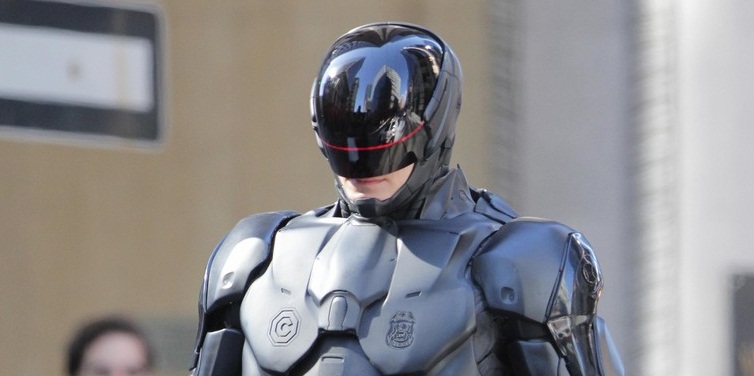
But having watched this reboot several months after it bombed in theaters, I was surprised to discover it actually isn’t half-bad — The filmmakers had actually put some thought into how to update the story in a clever way. Like Dawn of the Planet of the Apes, it also features a surprisingly-not-all-that-hammy performance from Gary Oldman. And months before Birdman, the beginnings of Michael Keaton’s 2014 comeback were laid here. Again, a Saturday afternoon movie at best, but this wasn’t the remake atrocity it was made out to be.
THE REST:
Worth Netflixing: Calvary, Dawn of the Planet of the Apes, The Fault in Our Stars, Frank, God’s Pocket, Godzilla, Gone Girl, Horns, The Hunger Games: Mockingjay, Pt. I, The Immigrant, Inherent Vice, Kill the Messenger, Life Itself, A Most Wanted Man, Neighbors, Nightcrawler, Noah, Palo Alto, The Skeleton Twins, The Theory of Everything, We Are The Best, X-Men: Days of Future Past
Don’t Bother: 300: Rise of an Empire, The Amazing Spiderman 2, Devil’s Knot, Fading Gigolo, Filth, Lucy, The Monuments Men, Nymphomaniac, Transcendence, St. Vincent, This Is Where I Leave You
Best Actor: Tom Hardy, Locke
Best Actress: Julianne Moore, Still Alice
Best Supporting Actor: J.K. Simmons, Whiplash
Best Supporting Actress: Patricia Arquette, Boyhood
Unseen: 3 Days to Kill, Alan Partridge, American Sniper, Annie, Begin Again, Belle, Big Eyes, Big Hero 6, Blended, Cesar Chavez, Chef, The Disappearance of Eleanor Rigby, Divergent, Dom Hemingway, Draft Day, The Drop, Dumb and Dumber To, Earth to Echo, Endless Love, The Equalizer, Exodus: Gods and Kings, Fury, The Gambler, God Help the Girl, The Giver, Heaven is For Real, The Homesman, I Frankenstein, If I Stay, The Imitation Game, Into the Storm, Into the Woods, Jack Ryan: Shadow Recruit, Jersey Boys, Joe, The Judge, Labor Day, Let’s Be Cops, Left Behind, Life After Beth, Maleficent, The Maze Runner, Million Dollar Arm, A Million Ways to Die in the West, Mommy, A Most Violent Year, Mr. Peabody and Sherman, Mr. Turner, Muppets Most Wanted, Need for Speed, Nonstop, The November Man, Nurse 3D, Oculus, Pompeii, Ride Along, The Rover, Sabotage, Sex Tape, The Signal, Sin City: A Dame to Kill For, Starred Up, Teenage Mutant Ninja Turtles, They Came Together, Think Like a Man Too, Transformers: Age of Extinction, The Trip, Top Five, Tusk, Two Days One Night, Unbroken, Veronica Mars, Walk of Shame, Wild, The Wind Rises, Winter’s Tale
- A Good Year For:
- Brazil Homages (The Double, The Zero Theorem)
- Chris Pratt (The LEGO Movie, Guardians of the Galaxy)
- Jazz Drums (Birdland, Whiplash)
- Marvel (Captain America: TWS, Guardians of the Galaxy)
- Stars Driving Around the UK (Locke, Under the Skin)
- Tilda Swinton’s Thatcher Impression (Snowpiercer, Zero Theorem)
- A Bad Year For:
- The Family Dog (Calvary, John Wick, The Babadook)
- Hydra (Captain America: The Winter Soldier, CitizenFour)
- Parenting (The Babadook, Force Majeure)
- Sony (The Amazing Spiderman 2, The Interview)
2015: Ant-Man, The Avengers: Age of Ultron, Blackhat, Chappie, Cinderella, Crimson Peak, The Fantastic Four, Far from the Madding Crowd, Fifty Shades of Gray, Frankenstein, Furious 7, Hot Tub Time Machine 2, The Hunger Games: Mockingjay, Pt II, Inferno, The Jungle Book, Jupiter Ascending, Jurassic World, Kingsman: The Secret Service, London Has Fallen, Mad Max: Fury Road, Magic Mike XXL, The Man From U.N.C.L.E, The Martian, Midnight Special, Minion, Mission Impossible 5, Paddington, Peanuts, Penguins of Madagascar, Pitch Perfect 2, Poltergeist, San Andreas, The Second Best Exotic Marigold Hotel, The Seventh Son, Silence, SPECTRE, Straight Outta Compton, Taken 3, Terminator: Genisys, Tomorrowland, The Walk, The Woman in Black 2: Angel of Death, and
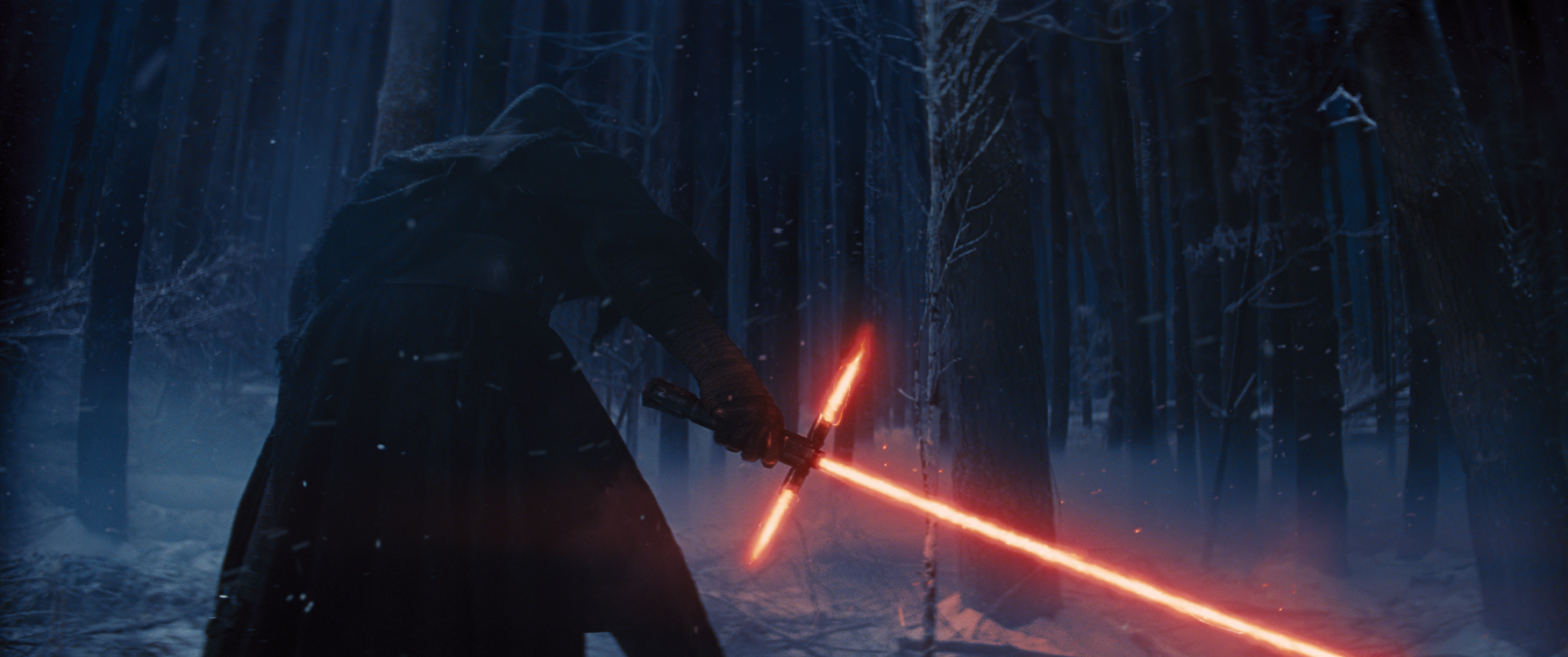
“There has been an awakening…can you feel it?”
